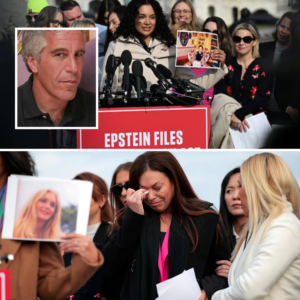On September 10, 2025, Charlie Kirk, the 31-year-old conservative activist and founder of Turning Point USA, was fatally shot during a speaking event at Utah Valley University (UVU) in Orem, Utah, in what authorities have called a targeted political assassination. The tragedy, which sent shockwaves through the nation, has left conservatives and supporters mourning the loss of a charismatic figure who championed faith, free speech, and conservative values. Amid the grief, a message Kirk posted on X just four days before his death, on September 6, 2025, has emerged as a source of comfort and inspiration: “Jesus defeated death so you can live.” This article explores the significance of Kirk’s final message, his life and legacy, the circumstances of his death, and the broader implications for political discourse in America, drawing from recent media reports, official statements, and public reactions.
The Final Message: A Testament of Faith
On September 6, 2025, Kirk took to X to share a simple yet profound statement: “Jesus defeated death so you can live.” According to The Western Journal, this post was not a bid for attention or a fleeting remark but a reflection of Kirk’s deeply held evangelical Christian faith, which underpinned his personal and public life. Those close to him, including his wife, Erika Kirk, emphasized that he lived his faith authentically, as a devoted husband and father of two young children. The message, rooted in Christian theology, resonated with his 5.3 million X followers and has since been widely shared as a testament to his belief in eternal life through Jesus Christ.
Kirk’s faith was a cornerstone of his activism. As noted by BBC News, his evangelical Christianity was front and center in his politics, often expressed through his podcast, “The Charlie Kirk Show,” and public appearances. His appearance on Bill Maher’s “Club Random” podcast four months before his death showcased his willingness to discuss faith openly, even in contentious settings, engaging in a cordial debate about identity politics and personal freedom. The Western Journal highlighted that Kirk’s September 6 post aligned with his lifelong commitment to spreading both conservative ideals and faith in Jesus, a mission he pursued relentlessly on college campuses across the United States.
The timing of the post, just days before his assassination, has been described as poignant by supporters. Stephen McAlpine, writing on his blog, reflected on the message’s significance, noting that Kirk’s faith assured him of a resurrection day, offering solace to those grieving his loss. “We can rest in the truth that Charlie walked the walk,” McAlpine wrote, citing Matthew 10:28: “Do not fear those who kill the body but cannot kill the soul.” This biblical reference, echoed in The Western Journal, underscores the belief that Kirk’s soul endures, providing comfort to his family and followers.
The Assassination: A Nation in Shock
Kirk’s assassination occurred during his “American Comeback Tour” at UVU, where he was engaging in a “Prove Me Wrong” Q&A session with a crowd of about 3,000. At approximately 12:20 p.m. MDT, as he responded to a question about transgender mass shooters, a single bullet struck him in the neck, fired from the rooftop of the nearby Losee Center, according to the Utah Department of Public Safety. The shot, described by firearms experts as precise yet achievable by a novice with a scoped rifle, caused Kirk to slump in his chair, bleeding profusely, as captured in graphic videos that spread rapidly online. He was pronounced dead at Timpanogos Regional Hospital, with President Donald Trump confirming the news on Truth Social at 2:40 p.m.
The FBI recovered a high-powered Mauser .30-06 caliber rifle in a wooded area near the campus, along with a spent cartridge and three unspent ones bearing inscriptions suggesting ideological motives, though the ATF has not confirmed these details, warning of possible misdirection. Surveillance footage shows the suspect, a college-aged male dressed in black tactical gear, including a mask, sunglasses, and Converse sneakers, fleeing the rooftop and blending into the crowd. Despite over 7,000 tips and 200 interviews, the suspect remains at large, with the FBI offering a $100,000 reward for information leading to an arrest.
The attack has been labeled a “political assassination” by Utah Governor Spencer Cox, who vowed to pursue the death penalty. The absence of metal detectors and minimal security—six UVU police officers and Kirk’s private team—allowed the suspect to access the rooftop undetected, raising questions about campus safety in Utah, where concealed carry is permitted.
Kirk’s Life and Legacy
Born in Prospect Heights, Illinois, Kirk founded Turning Point USA in 2012 at age 18, growing it into a $100 million organization with chapters at over 850 colleges, promoting fiscal responsibility, free markets, and limited government. Described by The Washington Post as “one of the most prominent voices on the right,” Kirk was a close ally of President Trump, who posthumously awarded him the Presidential Medal of Freedom. His charisma, amplified through his podcast and speaking tours, made him a millionaire and a polarizing figure, known for provocative statements on race, gender, and gun rights.
Kirk’s posts on X in the days before his death reflected his combative style. On September 8, he criticized pastors for ignoring the murder of Iryna Zarutska, a white woman, by a repeat offender, accusing the media of downplaying such crimes. On September 9, he challenged Democrats and the media for allegedly silencing stories that exposed flaws in criminal justice reform, comments that fueled accusations of divisive rhetoric. Despite this, Kirk was praised for his civility in debates, with Vice President JD Vance noting his ability to respond to hatred with respect.
His family life was central to his public persona. Married to Erika, a former Miss Arizona and founder of a faith-based clothing line, Kirk kept his two children’s identities private but often shared family moments, such as a beach photo celebrating his daughter’s third birthday in August 2025. Erika’s final post before the shooting, citing Psalm 46:1—“God is our refuge and strength, a very present help in trouble”—reflected the couple’s shared faith, which has become a focal point for supporters mourning his loss.
Public and Political Reactions
The assassination drew bipartisan condemnation, with former Presidents Joe Biden, Barack Obama, and Bill Clinton denouncing political violence. Biden stated on X, “There is no place in our country for this kind of violence,” while Trump called Kirk a “patriot who devoted his life to open debate,” blaming the “radical left” without evidence. Vice President JD Vance and Donald Trump Jr., who described Kirk as a “little brother,” expressed profound grief, with flags lowered to half-staff nationwide.
However, the response was marred by polarization. Conservative figures like Laura Loomer and Elon Musk pointed to the left, with Musk claiming, “The Left is the party of murder,” while Representative Anna Paulina Luna accused Democrats of inciting violence through “hateful rhetoric.” On the left, some, like MSNBC analyst Matthew Dowd, controversially suggested Kirk’s “hate speech” contributed to his fate, prompting MSNBC to fire Dowd after public backlash. Social media platforms like TikTok worked to suppress graphic footage, though some users celebrated Kirk’s death, leading to doxxing campaigns by right-wing activists, as reported by WIRED.
The feminist website Jezebel faced criticism for a pre-shooting article about “cursing” Kirk, later adding a note condemning political violence. Liberal commentators, including Jack Schlossberg, condemned the shooting while decrying gun violence, reflecting America’s deep divisions.
The Broader Context: Political Violence and Division
Kirk’s assassination is part of a troubling wave of political violence, including assassination attempts on Trump in July and September 2024, the murder of Minnesota legislator Melissa Hortman, and an arson attack on Pennsylvania Governor Josh Shapiro’s residence. Reuters reported over 150 politically motivated attacks in the first half of 2025, highlighting a polarized climate exacerbated by inflammatory rhetoric. Kirk’s own comments, such as his claim that “some gun deaths” were a necessary cost of Second Amendment rights, resurfaced as a point of contention, with critics noting the irony of his death during a discussion on gun violence.
The assassination has intensified debates over campus security, particularly in Utah, where permissive gun laws allowed the suspect to blend in. The lack of a clear motive or suspect has fueled speculation, with some X posts suggesting an ideological link based on the timing of Kirk’s exchange about transgender shooters, though authorities have found no evidence to confirm this. Governor Cox warned against misinformation, attributing some online chaos to foreign bots, and urged unity, echoing Kirk’s advice to “put our phones down and spend time with our families.”
Solace in Kirk’s Message
Kirk’s September 6 post has become a rallying point for supporters, who see it as a reflection of his unwavering faith and a reminder of hope amid tragedy. The Western Journal emphasized that Kirk “lived what he professed,” a sentiment echoed by conservative commentator Ben Zeisloft, who noted the impact Kirk had on young people through Turning Point USA. The message’s biblical underpinning aligns with Kirk’s belief in a higher purpose, offering comfort to his wife, Erika, and their children, who face a future without him.
For many, the post encapsulates Kirk’s legacy: a commitment to faith and fearless advocacy, even in the face of opposition. As Stephen McAlpine wrote, Kirk’s death reveals the “ugly truth” of internal division in the West, but his faith offers hope that “vengeance is God’s.” The message has inspired vigils, with red ribbons placed across UVU’s campus and mourners gathering at Utah’s State Capitol, reflecting Kirk’s enduring influence.
Conclusion
Charlie Kirk’s assassination on September 10, 2025, has left a void in the conservative movement and a nation grappling with escalating political violence. His final X post—“Jesus defeated death so you can live”—serves as a beacon of solace for those mourning his loss, reflecting a faith that sustained him through a polarizing career. As the manhunt for his killer continues and debates over security and rhetoric intensify, Kirk’s message reminds supporters of his belief in eternal life and resilience. The tragedy underscores the urgent need for unity and civility in a divided America, a challenge Kirk met with debate and conviction, leaving a legacy that will endure through his words and the movement he built.




